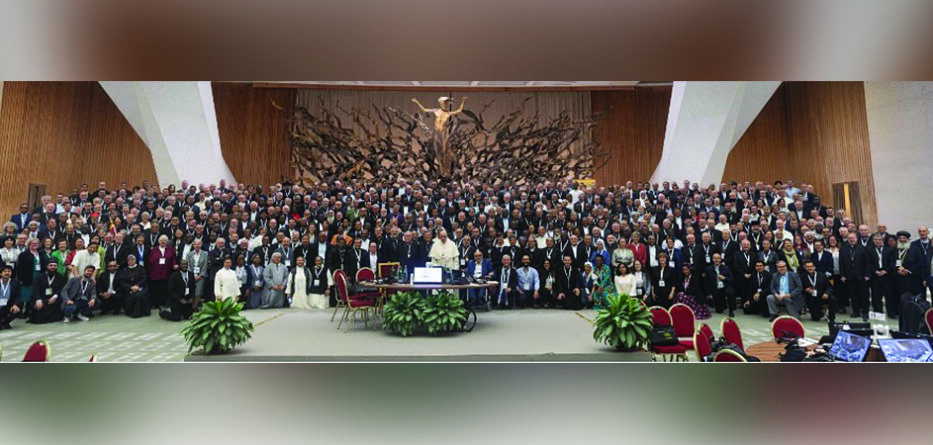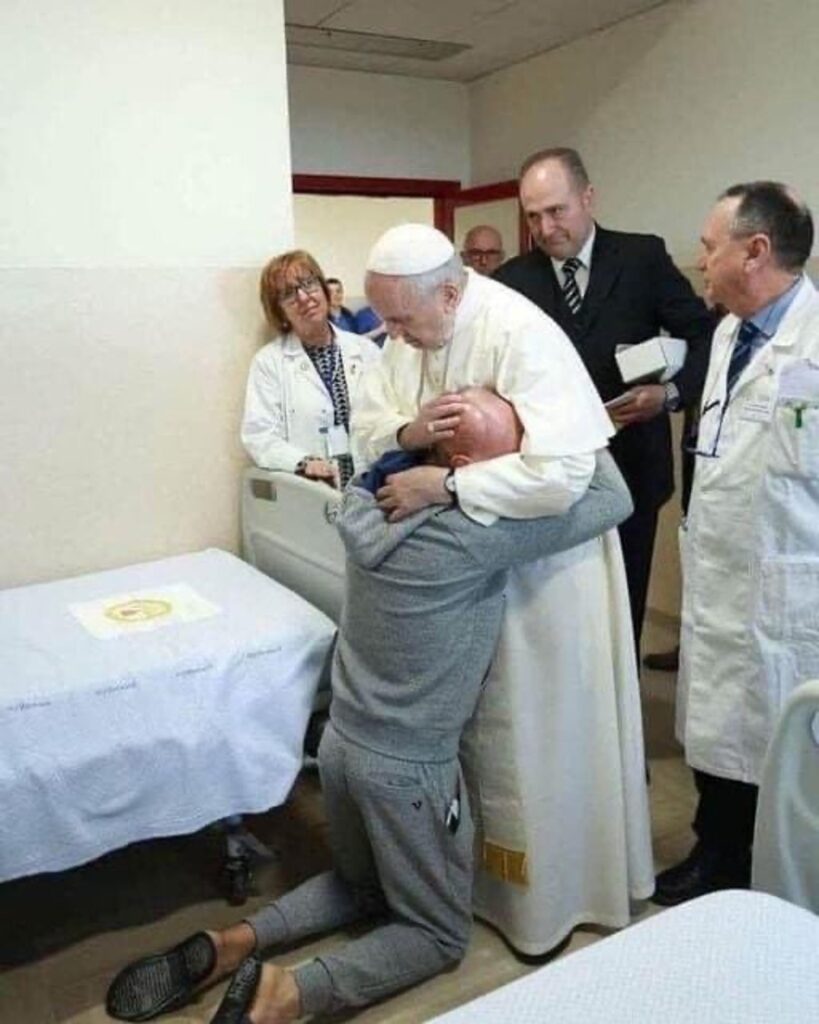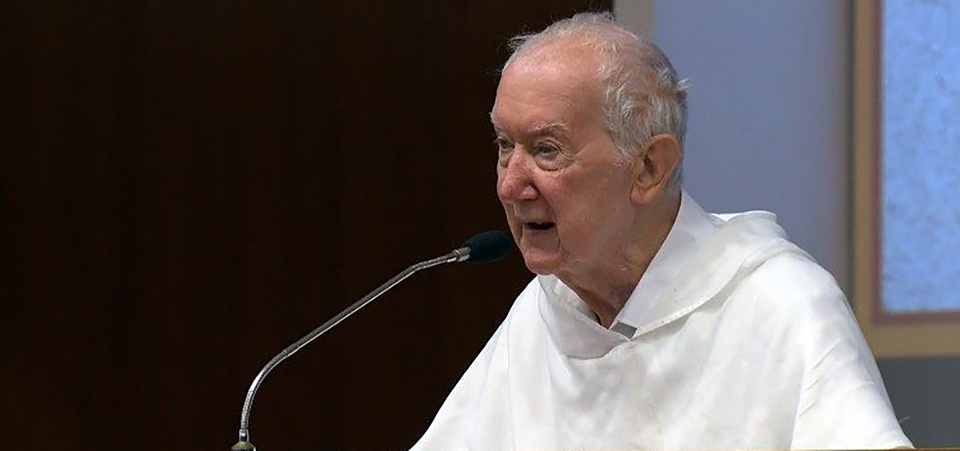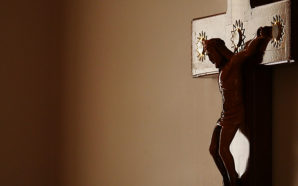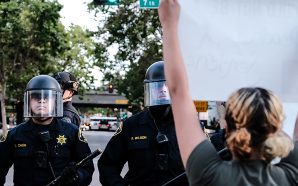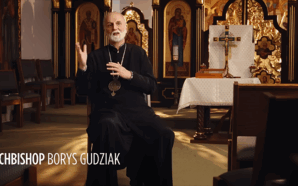Br Mark O’Connor FMS is the Vicar for Communications for the Diocese of Parramatta and is reporting on the Synod of Bishops on Synodality in Rome in October 2023.
Each week he will provide his personal reflection on the Synod.
Br Mark is also a Pope Francis fellow at Newman College, University of Melbourne.
Look: No one ever promised for sure
that we would sing. We have decided
to moan. In a strange dance that
we don’t understand till we do it, we
have to carry on.
Just as in sleep you have to dream the exact dream to round out your life,
so we have to live that dream into stories
and hold them close at you, close at the
edge we share, to be right.
We find it an awful thing to meet people,
serious or not, who have turned into vacant effective people, so far lost that they
won’t believe their own feelings enough to follow them out.
The authentic is a line from one thing along to the next; it interests us. Strangely, it relates to what works, but is not quite the same.
It never swerves for revenge,
Or profit, or fame: it holds
together something more than the world,
this line. And we are your wavery
efforts at following it. Are you coming?
Good: now it is time.
– William Stafford
Dear Friends,
1. Introduction
The first session of the Synod on Synodality has concluded.
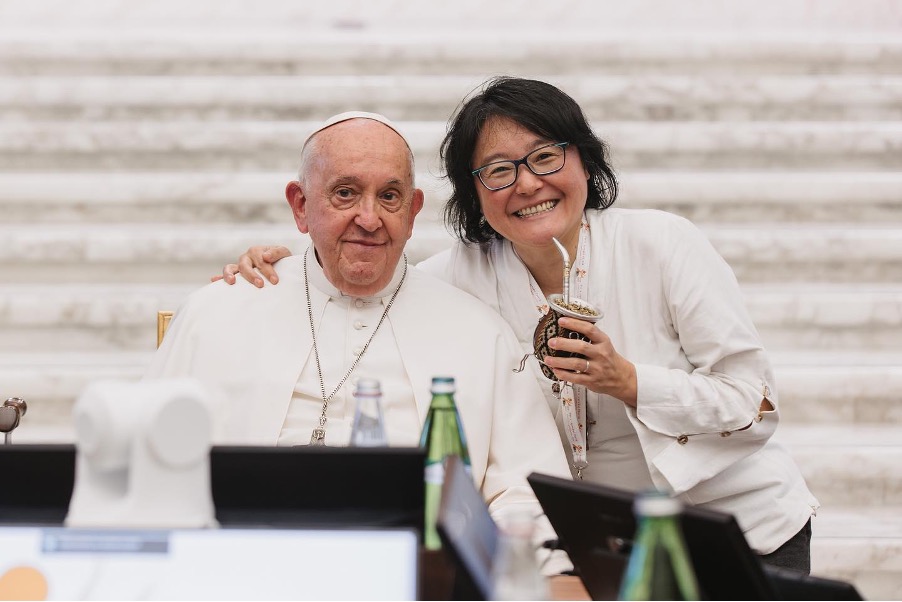
Pope Francis is a Synod delegate during the XVIII General Congregation of the XVI Ordinary General Assembly of the Synod of Bishops. Image: Vatican Media
Yes, it’s already been a long, long, journey and the “Camino” still goes on! The Synod reconvenes for yet another marathon session next October 2024.
And to be honest, ordinary people occasionally do raise the question with me: Is all this synodal stuff really worth all this time and effort? Are we merely raising people’s hopes and expectations for them to be dashed yet again?
My answer is wait a minute! We are an Easter people of hope! Yes, the synodal journey is worth it!
Sure, it undoubtedly demands much faith and resilience. Most of the delegates at this Roman Synod leave inspired but not a little exhausted!
But the journey must continue – not just for us but for future generations of disciples of Jesus to come.
And so, in this my fifth and final letter I give the reasons for my hope…
During these concluding days of the Synod, I have been encouraged by the wisdom of the North American poet William Stafford and his poetic reflection on his own long “inner” journey.
His poetry will help frame some of my own concluding personal thoughts on a month’s observation of a momentous ecclesial event.
2. Behind the scenes at the Synod: Tensions between a spiritual synodal process and the “prophets of doom”
“Look: No one ever promised for sure that we would sing” – ongoing difficulties and opposition from within our Church.
After many years of inertia, the Second Vatican Council’s implementation is again central to the contemporary Church’s agenda.
This “dream” of a Synodal church that strives to fully implement the Second Vatican Council had been proclaimed by visionary Catholic leaders like Dom Hélder Câmara of Recife, Cardinal Paulo Evaristo Arns OFM, Dom Samuel Ruiz, Cardinal Joseph Bernardin of Chicago and Archbishop John Quinn of San Francisco – Archbishop for many decades. And like many prophetic utterances, ignored for far too long.
As far back as 1980, yet another great leader, Cardinal Basil Hume OSB of Westminster, made this remarkable intervention at a Synod. Few at the time were listening…
“Last night I had a dream… I saw the Church as an enormous castle with many turrets, moats, battlements – all inside felt safe and secure – no one ventured outside… then I had another dream, the Church was a very large group of people on pilgrimage… the road signs were not always clear, some in fact were twisted or knocked down, but the people knew that they were being led by the Holy Spirit… you know, I liked the second dream much better than the first.”
– Cardinal Basil Hume OSB at the Roman Synod of the Family (1980)
Today, we have a Pope who is not afraid “to live that dream into stories”. It is the major gift of Pope Francis as “Peter”, to further develop in our lives, the fuller implementation of Vatican II.
Thank God we are living in this new moment in our history, “storied” at this Synod by a much more representative gathering of the whole of the People of God.
For Francis has creatively channelled the ‘dream’ of people like Basil Hume et al and allowed the people of God new freedom in this Synodal process. He has enabled people to move beyond a “fortress” model of church to tell their ‘stories’ of faith on the “road’’.
Our Holy Father has insisted that those on the margins are to be listened to in our Church – which he tellingly describes as a “field hospital” over against a clericalist Church which believes it already has all the “answers”.
Pope Francis has dared to bring together an ecclesial assembly that is imagining new pathways for the good of the people of God.
Of course, these Synodal delegates don’t necessarily have all the answers.
And as Cardinal Jean-Claude Hollerich SJ has frankly acknowledged: “We are not afraid of tensions. Tensions are a part of the process, as long as we consider ourselves to be sisters and brothers, walking together.”
Certainly, new graces are being offered by this gathering of local churches united under the Successor of Peter. Most involved speak very positively of the experience.
Is it a perfect process and Synod? Obviously not. For example, for whatever reason, there seems to be a strange absence in the lack of parish priests present as delegates.
And the media strategy of the Holy See has made life quite difficult for responsible journalists trying to communicate what the heck is going on in Rome these days!
And yes, it’s true, as the usual critics claim, that the consultation only involved one percent of the world’s Catholics – even though it was still the largest consultation ever undertaken in our global Church!
That said, it’s a whole lot more representative and balanced than the sample of a small handful of reactionary journalists here in Rome these days, who are in Stafford’s terms: “vacant and effective people”. But you must give it to them. They know how to manipulate Catholic social media. Their open hostility to Pope Francis is shameless.
And I, for one, have concluded that there is a big difference between negotiating inevitable tensions in a global Church and tolerating the relentless negativity of a small group of “prophets of doom” in the Catholic media.
For example, the “leaking” to some of these very journalists of the draft of the final synthesis document was a malicious manoeuvre to undermine the Synod’s integrity. It was a direct attempt to politicise a process that Francis has insisted should be a respectful and confidential spiritual discernment.
Worse still, some of these journalists represent elite right-wing monied USA Catholic groups and shadowy episcopal patrons resentful of not being made Cardinals e.g. the notorious and wealthy Archbishop Viganò to name but one.
As I have said before, their primary and over-riding conviction seems to be that the only person the Holy Spirit can’t work through these days is apparently, Pope Francis!
Of course, there is, and has been, plenty of room in the synodal process for a great variety of theological perspectives. And respect for the Magisterium and orthodoxy is indeed central to our Catholic faith.
But I would argue that our October 2023 synodal delegates are the real orthodox conservatives present in Rome today– because they overwhelmingly want to ‘conserve’ and apply to our realty, the living Gospel. Always with Francis, the Successor of Peter, having the final word.
They understand with Pope Francis that: “Traditionalism is the dead faith of the living; whereas Tradition is the living faith of the dead.”
For them, the authentic tradition is dynamic and a “river”. For as Cardinal John Henry Newman famously pointed out: “To live is to change, and to change often is to become more perfect.”
I continue to hope, therefore, because the dream of Vatican II, despite opposition, is moving forward.
3. Witnesses of Hope: The Spirit, after all, is poured out on people, not ideas.”
“The authentic is a line from one thing along to the next; It never swerves for revenge, Or profit, or fame…”
Shaun Blanchard, a theologian from the University of Notre Dame Perth, recently wrote a fascinating piece on the history of Synodality.
One very insightful point Dr Blanchard made stood out for me:
“It is noteworthy that [Yves] Congar sought to re-centre the Holy Spirit in Catholic ecclesial discourse. The Spirit, after all, is poured out on people, not ideas.”
Precisely. Let’s face it, who was ever really deeply changed by an argument? Especially a theological argument!
People, rather, are only changed by encountering credible persons and insights “caught not taught” from authentic witnesses to the Gospel.
Witnesses who “never swerve for revenge, Or profit, or fame…”
Such metanoia must well up from within our deepest selves; for in our world today it can never be imposed simply from decree by remote authorities.
And I am convinced that the Holy Spirit has been ‘poured out’ in this remarkable ecclesial Synod largely because of the extraordinary “witnesses of hope” present in such great numbers.
I now provide just a few glimpses of such witnesses of hope (via sample quotes and/or links) drawn from their beautiful personal witness:
- The women delegates
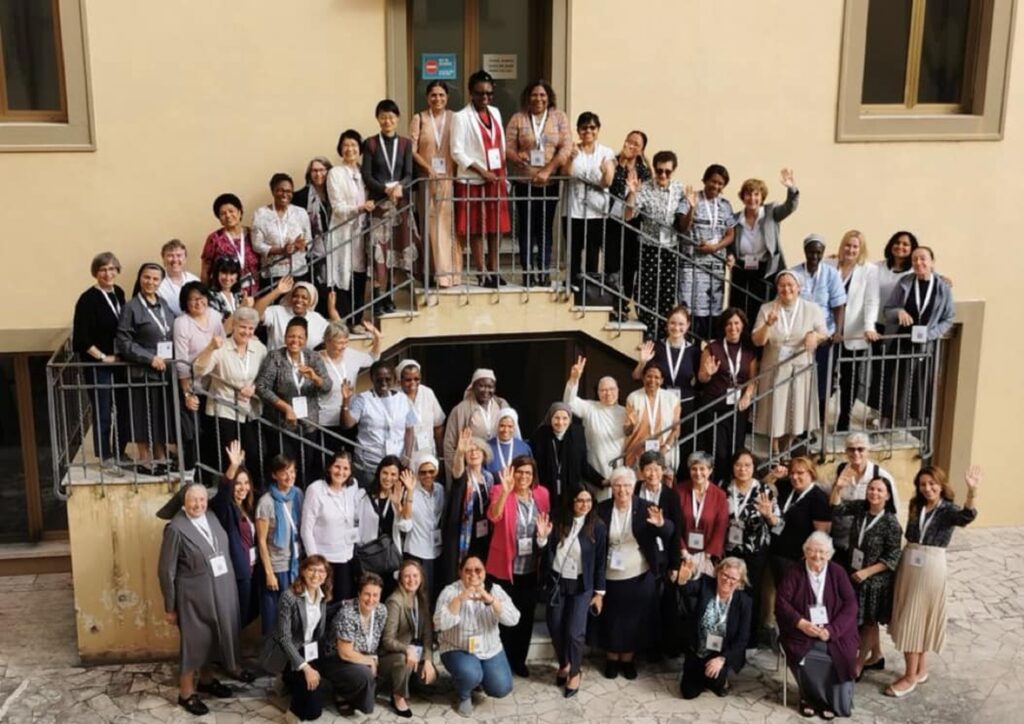
A group photograph of the Synod sisters, all (except for the facilitators) with voice and vote. Image: Supplied
A remarkable feature of this synod has been for the first time, the presence of so many women delegates and advisors. It is noteworthy Pope Francis made a special point of praising the contribution of women in his remarks on Thursday last week:
“We members of the Hierarchy come from that people and we have received the faith of that people, generally from our mothers and grandmothers, ‘your mother and grandmother’ Paul tells Timothy, a faith handed down in a feminine dialect, like the mother of the Maccabees who spoke ‘in dialect’ to her children. And here I like to underline that, among God’s holy and faithful people, the faith is transmitted in dialect, and usually in the feminine dialect. This is not only because the Church is Mother and it is precisely women who best reflect her; … because it is women who know how to wait, who know how to discover the resources of the Church, of the faithful people, who risk beyond the limit, perhaps with fear but courageous, and in the light and shade of a day that is beginning, they approach a tomb with the intuition (not yet hope) that there may be some life.”
The ongoing role of women in the Church has been a major concern in this Synod, despite some isolated figures claiming it’s a “niche” issue.
Because of space limitations, I would like to focus on just one female delegate – Ghanian theologian Dr Nonterah – who gave moving witness to hope at one of the Synod press conferences. I will simply let her speak for herself:
- Ghanian theologian Dr Nora Kofognotera Nonterah – The wisdom of African women
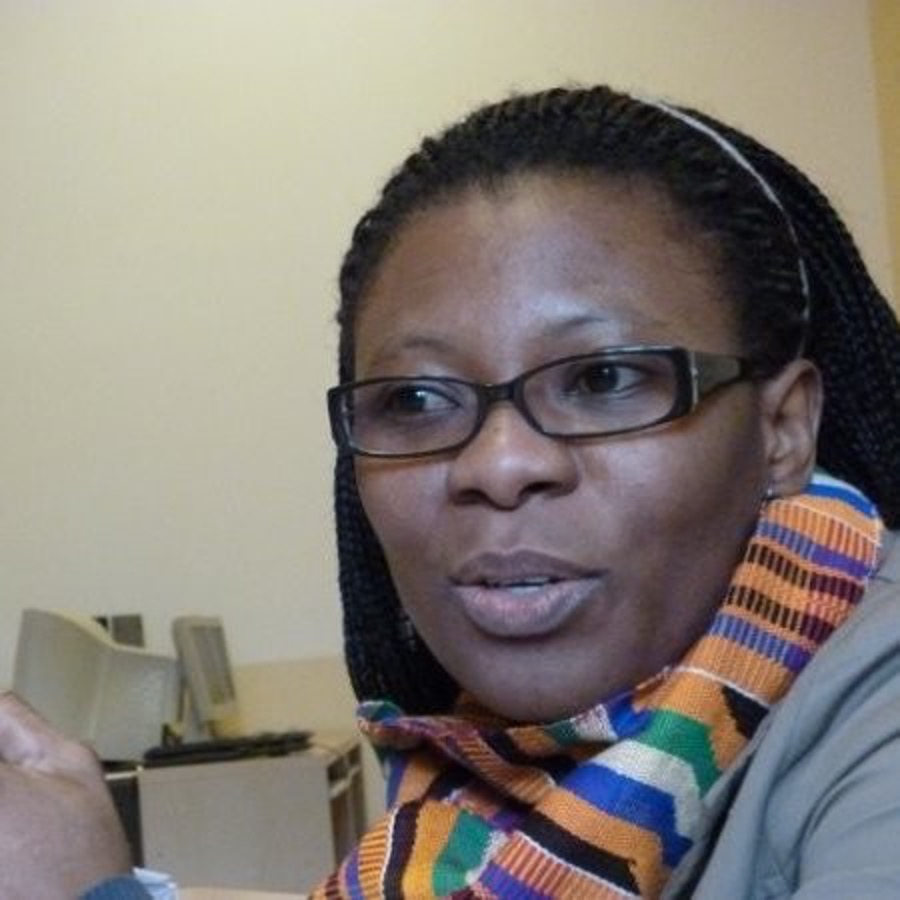
Synod delegate Dr Nora Kofognotera Nonterah, a Ghanaian theologian and university lecturer. Image: Supplied
Doctor Nora Kofognotera Nonterah, a Ghanaian theologian and university lecturer, spoke as a witness of the synodal process for Africa. She said she felt heard as a layperson, a woman, and an African woman in a Church that in the past often did not give voice to, nor benefit from, the wisdom of African women. “But as I come to the Synod,” she said, “I come to the Synod with the hopes, the joys, the dreams, the anxieties, the lamentations, but also the resilience of the African women, lay people from the continent, and in fact, the entire Church, that might not always get to sit at the centre of the table of discourse.
She added, “Inspired by the significance of the maternal role of our lady, Mother Mary, I tend to believe that African women can teach the Church how to be a mother for all, how to be a visionary mother for all her children. My conviction is that synodality is the best way to live as a Church that can give true witness to the Gospel. However, for us to emerge as a synodal Church, in my opinion, can only be possible if we have true and authentic and deep formation that is rooted in conversation in the spirit. And the spirit always invites us to celebrate our differences, not to hide them, but to recognize and celebrate them”.
She concluded by recalling the wisdom of African women with a song dedicated to an African mother.
- Fr Ormond Rush
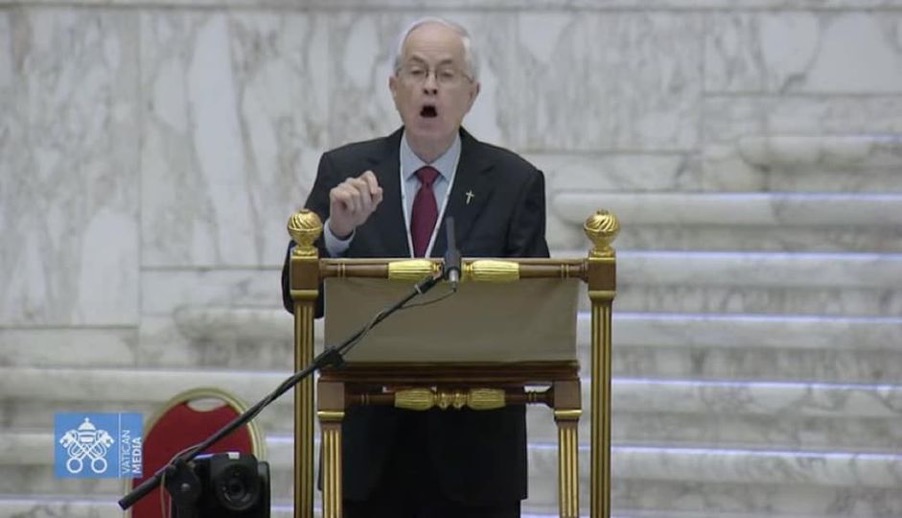
Fr Ormond Rush speaking during the XVI General Ordinary Assembly of the Synod of Bishops. Image: Vatican Media
Another outstanding “witness to hope” was Fr Dr Ormond Rush from the Diocese of Townsville. A world-renowned specialist theologian on the hermeneutics of Vatican II, Fr Rush gave masterly exposition to the Synod delegates (including the Holy Father) on understanding how Revelation is both the deposit of faith but also a dynamic gift of the Spirit in history. Drawing on Dei Verbum and the brilliant theological work of the early Joseph Ratzinger when he was a periti at Vatican II. It was one of the highlights for me of a month already rich in theological and pastoral learning.
Orm made real sense for me of the promise of Jesus in John’s Gospel: “I still have many things to say to you but they would be too much for you to bear now.. However, when the Spirit of truth comes he will lead you to the complete truth, since he will not be speaking of his own accord, but will say only what he has been told; and he will reveal to you the things to come.” (John 16:12-13).
Again, read Orm Rush’s own words:
This Synod is a dialogue with God. That has been the privilege and challenge of your “conversations in the Spirit.” God is waiting for your reply. At the end of this week of synthesis, you might well want to begin that synthesis by saying, as did that first Council of Jerusalem, described in Acts 15: “It seemed good to the Holy Spirit and to us…” In their time, their letter to the churches then went on to address an issue on which Jesus himself had left no specific directions. They and the Holy Spirit together had to come to a new adaptation of the Gospel of Jesus Christ regarding that new question, which had not been envisaged before.
Vatican II, accordingly, urged the church to be ever attentive to the movements of the revealing and saving God present and active in the flow of history, by attending to “the signs of the times” in the light of the living Gospel. Discernment of the signs of the times in the present seeks to determine what God is urging us to see—with the eyes of Jesus—in new times; but also urging us to be attentive to the traps—where we could be being drawn into ways of thinking that are not “of God”. These traps could lie in being anchored exclusively in the past, or exclusively in the present, or not being open to the future fulness of divine truth to which the Spirit of Truth is leading the church.
- Cardinal Christoph Schonborn OP
A few Bishops have intervened to question whether this Synod is really a valid Synod of Bishops because of the presence of lay delegates who can vote.
Christopher Lamb asked the question to one of the most eminent and trusted theologians in our Church today – Cardinal Christoph Schönborn.
“My question to Cardinal Christoph Schönborn — one of the most respected theologians in the church —on the questioning in some quarters of the authority of the synod because it includes lay people. Cardinal Schönborn insists it is an “episcopal synod with enlarged participation.”
The masterly reply of Cardinal Schönborn – one of the great theologian “witnesses of hope” in our Church today deserves to be watched in this short video clip
- Fr Timothy Radcliffe OP
And finally, in my personal list of ‘witnesses of hope’, I recommend you please watch the extraordinary and profound video presentations of Fr Timothy Radcliffe OP and listen to his podcast with Christopher Lamb of the Tablet. What a gift of the Spirit Fr Radcliffe has been to this momentous Synod!
I journey on in hope because the Spirit is calling forth such credible authentic witnesses to the Gospel in this synodal journey.
Conclusion:
Avanti! – Final Messages from the 2023 Synodal Assembly and Pope Francis:
“…we don’t understand till we do it, we have to carry on”.
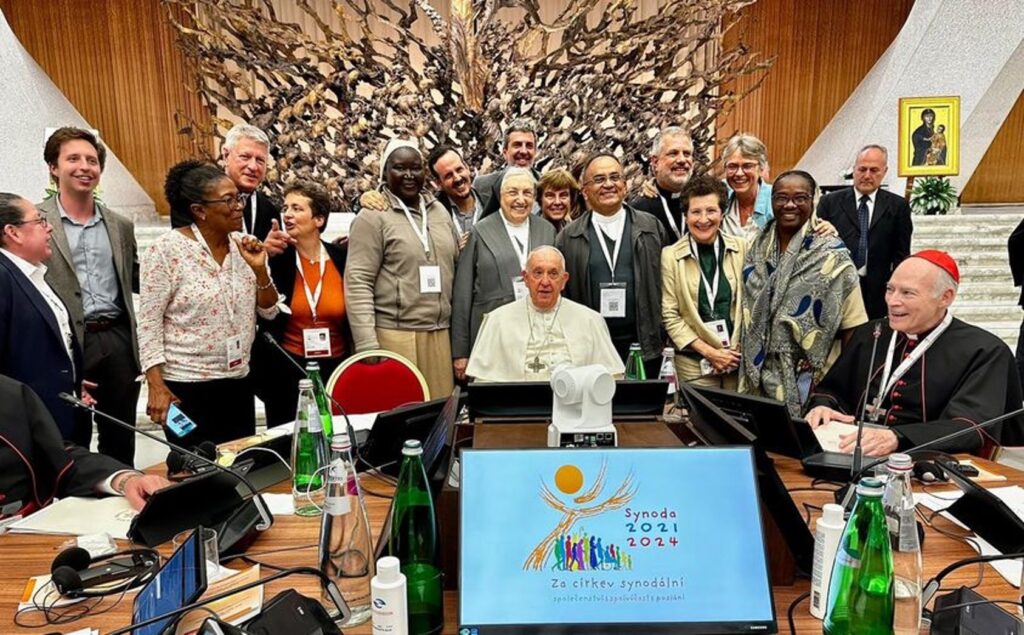
Pope Francis with delegates at the conclusion of the XVI Ordinary General Assembly of the Synod of Bishops. Image: Supplied
So where to now? The people of God must go forward with daring and courage (see Joshua 6:7). As Cardinal Óscar Rodríguez SDB is fond of saying: “There are no reverse brakes in the church!”
But Fr Tom Reese SJ gives us some great advice about implementing the synodal path in our daily lives.
The synod is not an academic conference on the theology of synodality; it is an experience of synodality. It is like the difference between a conference to discuss prayer and going on retreat to pray. It is the difference between talking about love and being in love.
As a result, no document will convey the result of the synod. It will not be enough to read any document that comes from the synod; Catholics must experience the synod, must do synod. The best place to do this is in your parish.
Please now go and read carefully the two important messages from the Synod:
The first is a Message of the XVI Ordinary General Assembly of the Synod of Bishops to the People of God.
The second is a Synthesis document (now available in English) that will now be received and discussed in another phase of conversation and dialogue leading up to the second session of the Synod which begins again in October 2024. More about these documents later in the letter.
The English version has been posted https://t.co/anzlWDydjL
— Catholic News Service Rome (@CatholicNewsSvc) October 29, 2023
In between, various commissions will study and make recommendations about the many critical issues raised for our Church during the Synod – proposals that elicited agreement and also those where there was divergence and disagreement.
Catholic Outlook will provide in-depth analysis and commentary of these crucial documents in the coming weeks. Stay tuned.
I know some will be a little disappointed that the Final document appears at a first reading, a little timid. I note the President of the German Bishops Conference, Bishop Bätzing, interestingly observed that ‘The Synod was honest, but (yet) not courageous.’
But overall, I strongly concur with Steve Millies‘ tweet and also urge people to take the ‘long view’:
Sharing disapptment with the state of the #Synod NOW with many #Catholic ppl, I want to underscore again the only outcome or action that matters is building a more participatory #CatholicChurch to make the Church durably more inclusive.
That’s underway.https://t.co/kyIkYQMyhN
— (@stevenpmillies) October 28, 2023
I am, therefore, inspired to go on hoping because the Synodal process is creatively imagining new ways to proclaim the Gospel for future generations of believers.
The #Synod2023 synthesis document lays the groundwork for a significant shake-up of how the Church carries out its mission, including a more prominent role for women, greater recognition of lay ministry & an overhaul of the training of priests.
But the big test is implementation…
— Christopher Lamb (@ctrlamb) October 28, 2023
In many parts of the world, the synod is still theory rather than practice.
The synod document keeps the discussion of women deacons on the table, along with the ordination of married men. Everything in the document passed with a 2/3 majority.
Women deacons paragraphs faced…
— Christopher Lamb (@ctrlamb) October 28, 2023
There is likely to be disappointment regarding any shift in the Church’s ministry to LGBTQ Catholics as the discussion that took place in the synod over this topic does not seem to be in the final text. #Synod2023
— Christopher Lamb (@ctrlamb) October 28, 2023
But the text does say that, when it comes to sexuality and identity, there are time when the Church’s “anthropological categories” are not able to grasp the complexities of experience or “knowledge in the sciences” & require greater precision and further study. #Synod2023
— Christopher Lamb (@ctrlamb) October 28, 2023
One final thought. As the Synod has progressed, I have become convinced that if we could just imagine new answers to this one key question: “How can we bring about a different culture of decision-making?” – at every level of the Church – much would be achieved synodally. Providentially, that task is already well advanced in the Diocese of Parramatta.
Let’s also heed the perennial wisdom of Dom Hélder Câmara: “When we are dreaming alone it is only a dream. When we are dreaming with others, it is the beginning of reality.”
Until October 2024!
Br Mark O’Connor FMS
For further research, reading and reflection, see:
- Michael Sean Winters’ article ‘At the synod, a new kind of conversation is evolving‘ from the National Catholic Reporter.
- ‘Synodality & Catholic Amnesia‘ by Shaun Blanchard in Commonweal.
- Joshua McElwee’s thoughts on the Synod open letter to the People of God ‘Synod letter to Catholics highlights role of women, listening to abuse victims‘ in the National Catholic Reporter.
- The latest Synod Diary report from America.
- Loup Besmond de Senneville’s reflection on the Synod Letter in La Croix International.
- ‘Synodality will not eliminate the need for a decisive authority‘ by Pascal Wintzer in La Croix International.
- Cardinal Cupich speaking to America’s Vatican correspondent Gerard O’Connell about the Synod’s synthesis document.
Read Br Mark’s first letter – ‘Trust the God of surprises! Letters from a listening and global Synod’
Read Br Mark’s second letter – Ear to the Ground: Letter Two from a listening and global Synod
Read Br Mark’s third letter – Put out to sea! Letter Three from a listening and global Synod
Read Br Mark’s fourth letter – ‘The meaning is in the waiting’: Letter Four from a listening and global Synod




